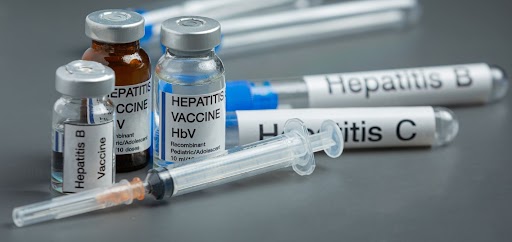14 of the 20 Countries Most Affected by Viral Hepatitis Have Made Progress Towards its Elimination, Says Lancet Commission
Key actions to accelerate progress in all countries include simplifying models of care, ensuring access to appropriate diagnostics, funding hepatitis care, and learning from the COVID-19 pandemic
15.02.2024
14 of the 20 countries with the highest burden of viral hepatitis have made progress towards its elimination, according to a policy index score developed by the Lancet Commission on Elimination of Viral Hepatitis, co-led by the Barcelona Institute for Global Health (ISGlobal), an institution supported by “la Caixa” Foundation. However, further investment is needed to support local clinicians, scientists, advocates, and activists to implement and monitor national plans across all countries.
Most of the burden is concentrated in 20 countries
Twenty countries account for more than 75% of the global burden of viral hepatitis (HBV and HBC). This means that the global elimination targets set for 2030 (a 90% reduction in incidence and a 65% reduction in mortality) cannot be achieved without an effective response in these 20 countries.
“By burden we mean not only the number of infections in these countries, but also the years lived with disability due to these infections,” says ISGlobal researcher Jeffrey V. Lazarus who, together with three other world experts, has led the Lancet Commission on Progress towards Elimination of Viral Hepatitis for the past three years.
To track a country’s progress towards hepatitis elimination, the Commission designed an index based on 11 key policies for elimination. A first assessment was carried out in 2018, followed by another in 2023. The analysis, conducted with national experts from each of the 20 countries, shows that countries with the strongest policy responses in 2018 (Brazil, Egypt, and the USA) have continued to make progress. Egypt remains an example of what can be achieved in settings with limited resources, with one of the most ambitious testing programmes in the world and free provision of HBV vaccination at birth. Similarly, Brazil has championed free, sustainable access to HCV therapy since 2015.
National plans, screening and antivirals
Overall, 14 of the 20 countries have made progress since 2018, largely thanks to national action plans, publicly funded screening and subsidised of antiviral treatment. The most substantial progress has been made in Bangladesh, India, Indonesia, Japan and Russia. Little or no progress has been made in Ukraine, Myanmar and Ethiopia, due to political unrest and war. And in some countries, such as Pakistan and the Philippines, the policy index scores have decreased.
Some key themes emerged from discussions with national experts, including a greater emphasis on simplified models of care, access to appropriate diagnostics, and funding of hepatitis care. Some lessons from the COVID-19 pandemic, such as use of telemedicine, self-testing and decentralisation of care, were also identified. Other relevant measures include global pricing of antivirals and the decriminalisation of drug use in many of these countries.
“The work of our Commission shows that while progress has been made in these high-burden countries, there is still a long way to go to reach the WHO elimination targets,” says Lazarus, head of the Health Systems Research group at ISGlobal.
He and colleague Camila Picchio participated recently in the week of liver disease in Catalonia (January 15-18), a region committed to eliminate viral hepatitis by 2030. They also lead COMSAVAC , a European project aimed at scaling-up and adapting community-based viral hepatitis testing and vaccination strategies among migrant and refugee populations from high-burden countries. This project is being conducted in Italy, Greece, and Spain.
Lazarus and colleagues also authored a study in Lancet Gastroenterology and Hepatology analysing hepatitis C antiviral reimbursement policies in 160 countries.
You can see here a webinar on the global launch of “The Lancet Gastroenterology and Hepatology Commission on viral hepatitis”, on Thursday, February 15, 2024, 1:00 pm GMT.
Reference
Cooke GS, Flower B, Cunningham E et al. Progress towards elimination of viral hepatitis: a Lancet Gastroenterology & Hepatology Commission update. The Lancet Gastro Hepat. Doi: 10.1016/S2468-1253(23)00321-7



